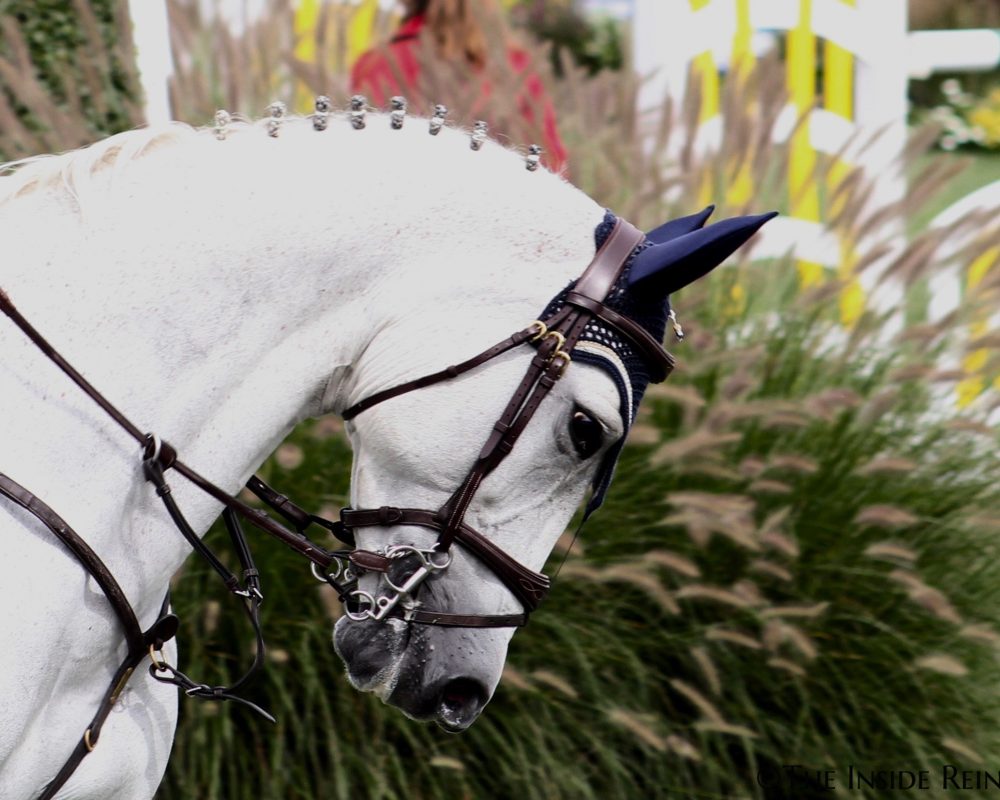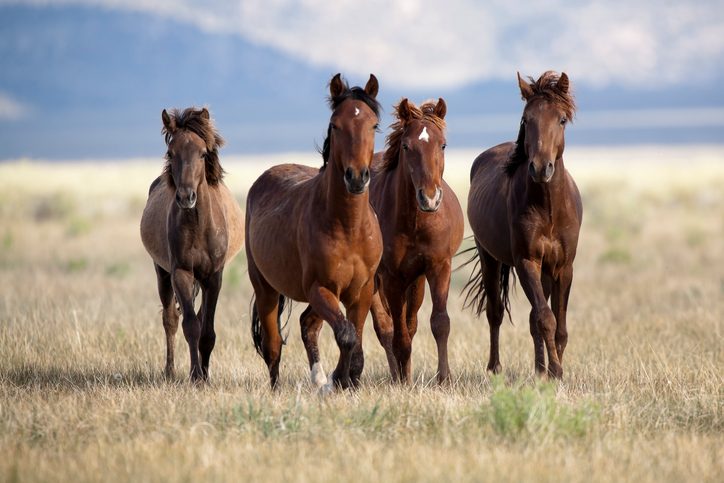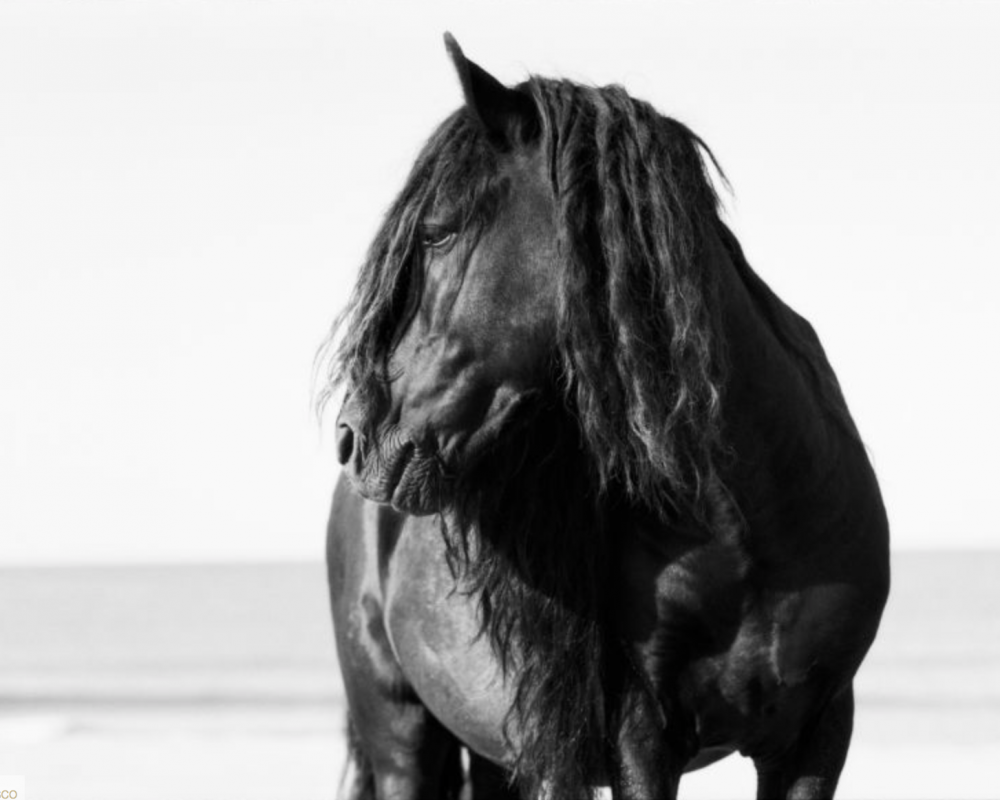In 2006, Robin Hutton had a dream that initiated a life-altering journey. She dreamt of a sick horse held captive in her closet for eight years, which Hutton had to free before he perished. Hutton interpreted the dream to be symbolic of her eight-year’s worth of unfinished writing, and the analysis prompted her into action. Inspired, she turned to her bookshelf, stacked high with horse-themed books – and extracted Chicken Soup for the Horse Lovers Soul to begin researching a project. It was in those pages she first learned of Sgt. Reckless: horse, marine, hero.
Hutton was captivated after reading the short story about a horse that served as a marine during the Korean War. “I thought it was the greatest horse story I’d ever discovered,” said Hutton, “I Googled her name and only four things came up on the internet – she had vanished from the pages of history which I thought was a travesty. My life took a new direction right there – Reckless’ story took front and center.”
Researching Reckless’ story was a heady task – many who knew her well were deceased or didn’t want to relive the horrors of the “forgotten” Korean War while reflecting on Reckless. Fortunately for Hutton, some were eager to tell the story of the 13-hand Mongolian mare turned decorated war hero.
Hutton takes readers on a detailed and often humorous journey of Reckless’ stint in Korea, while simultaneously detailing a war lost in the background of American history.
Reckless, originally called Flame, was born at the Sinseol-dong racetrack in Seoul. The mare was destined for a career on the racetrack until Lt. Eric Pedersen, seeking a horse to carry ammunition across the rough terrain of Korea, purchased Flame. She became a member of the Recoilless Rifle Platoon and the troops quickly changed her moniker to Reckless – the nickname for the Recoilless Rifle.
Technical Sergeant Joe Latham had the task of putting Reckless through “hoof camp”. He diligently taught the mare marine survival skills – adapting to the sounds of war, conditioning her to traverse the hills of Korea for hours on end, and even learning to hit the deck at the sound of incoming fire. The little mare mastered every task put before her.
Though Reckless was a hard worker, she was certainly no bore. The mare came to view her bi-pedal marine counterparts as a part of her new herd and quite literally began acting as one of the pack. She became a connoisseur of army beer, to the point where she’d occasionally exhibit symptoms of a hangover. She was also a chocolate lover and enjoyed a good scrambled egg breakfast. A voracious appetite occasionally led Reckless away from traditional fare, the mare devouring hats, blankets, and poker chips. These antics made Reckless a favorite of the platoon and on cold nights the marines were more than happy when Sgt. Reckless wandered into their tents to sleep in front of a warm stove.
Despite some comedic reprieve, Reckless’ time in Korea was more work than play. Her dauntless courage was on display during two of the war’s fiercest battles at outposts Reno and Vegas. The mare dodged heavy artillery fire to make 51 round trip journeys to various gun sites and, according to Hutton, carried a total of over 5 tons of explosives in a single day. Incredibly, she did it alone. Reckless instinctively knew where to go and, rather than run away in fear, persevered through the most dangerous of circumstances. At the end of that day, Reckless suffered two wounds and was honored with two purple hearts.
Hutton captures these moments between Reckless and her marines – both the humorous and the horrific – with great detail thanks to the many individuals who shared their experiences with the author. Hutton is the first to say how much these interactions have meant to her, “The people I’ve met and that have become forever friends because of her story has been incredible. I know what she’s done for the men that served with her and letting them tell her story and be part of this wonderful celebration of her life has just been phenomenal. This little horse has changed my life.”
A few stories in particular stood out to Hutton, the first of which was told by Lt. Bill Riley, who accompanied Reckless on an amphibious landing drill. Riley, wanting to give Reckless a good reputation, explained that the horse handled the landing like a champ. In reality, the weather had turned inclement, causing Reckless to grow seasick, and the landing was ultimately doomed – neither Reckless nor the tanks made it onto land. When Hutton questioned his story he laughed and said, “Well that’s really what happened, but over the years the story got a lot better.”
Riley’s daughter had found his letters and pictures from Korea, which were key to developing a timeline for the marine’s stories. “Out of the eight letters, four of them contained dates and information on Reckless. To see somebody write about this horse was just wonderful. His story is a really important one for me.”
When the Armistice was signed, a great effort was made to relocate the decorated, four-legged marine to American soil. The men who’d fought alongside Reckless worked tirelessly and spent their own money to get their fellow fighter home. Reckless did eventually make the trip and lived out her days at Camp Pendleton.
PFC Art Sickler was charged with caring for Reckless for two years while at Camp Pendleton and his story has also touched Hutton. “Art Sickler’s story is probably the most poignant one for me. The love he had for her after taking care of her for 2 years is evident. I’ve been to North Dakota [where Sickler resides] twice for book tours and Art still wells up with emotion when he talks about this horse.”
Life at Camp Pendleton wasn’t rent-free for Reckless. The mare participated in everything from hikes to parades and was visited frequently by marines and their families. She had so many visitors, in fact, that they eventually prohibited people from feeding her apples and carrots for fear she’d contract diabetes.
Though it wasn’t a quiet life in the pasture, Hutton believes that Reckless enjoyed her days at Camp Pendleton. Hutton’s only hesitation lies in the fact they bred the mare four times. “I don’t know why they did that to her,” said Hutton. Despite bearing three colts, Reckless’ bloodline no longer lives on, each of her foals having been gelded.
Hutton continues to honor the memory of Reckless, raising money and lobbying for monuments in her honor. The first monument, created by Jocelyn Russell, is a stunning bronze statue that resides at the National Museum of the Marine Corps and Heritage Center in Quantico, VA.
Another statue of Reckless was unveiled at Camp Pendleton in October. “It was just breathtaking,” said Hutton of the dedication, “I had the mounted color guard out of Barstow come and present the colors. To see them walk across and stand at attention at her monument, paying homage to one of their own, was breathtaking.” Monuments are also planned for the Kentucky Horse Park and in South Korea, Reckless’ original home.
Hutton’s next project, a collection of short stories about the animal heroes of WWII, will also pay homage to the lesser known, non–human war heroes. And Hutton still hasn’t given up on seeing Sgt. Reckless: America’s War Horse hit the silver screen.
To learn more about Sgt. Reckless, visit her website or pick up the book on Amazon.
By Ashley Fairfield-Remeza



December 24, 2016 at 3:19 pm
Wonderful interview about such a legendary mare. Truly a favorite of mine. Thank you Ashley, I’m sharing this while I’m smiling on my heart !
December 24, 2016 at 8:53 pm
Thanks for reading, Sunny! Happy Holidays to you and your family.
December 26, 2016 at 4:37 am
I was fortunate enough to be at the dedication ceremony at Camp Pendleton, and it was amazing. Being a lifelong equestrian, and the fact that my Father was killed in the Korean War, Reckless has always held a special place in my heart.
December 29, 2016 at 6:36 pm
What a wonderful story how true thank you and thanks to Robin.